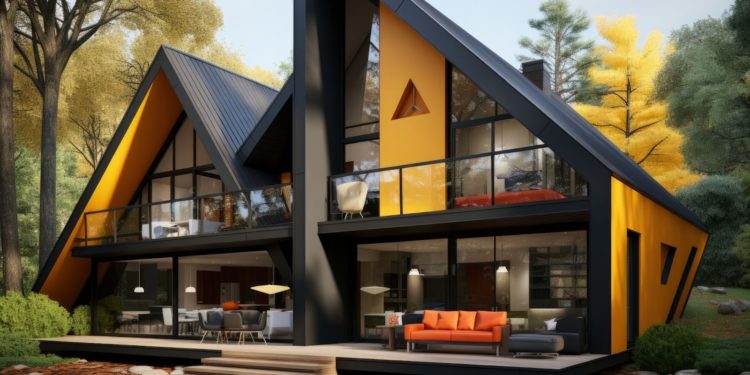Thinking of beginning with a home extension project can be daunting for most homeowners and making it a successful one can be even more. This type of home project happens only once and is a lifetime opportunity and investment. Hence, avoiding making impulsive decisions, it is essential to make sure that it should go as smoothly as possible.
Investing in extending your home is important funding that will not only enhance the quality of your living space, and increase your property’s value, but also custom-design your home to suit your living needs. A successful home extension requires several aspects that have to be considered, a thorough budget planning, aesthetics of your extension, a legal design adhering to building rules and regulations, and sustainability factors.
By carefully analysing these factors and working with experienced and the best home extension contractors, you can create an aesthetically appealing, and fully-functional space that enhances the ambience of your home by fulfilling your needs for years to come.
Therefore, before you begin with investing your money for a successful home extension, it is immensely paramount to assess some important key factors that has to be considered for a home extension project:
- Purpose and Vision: It is very important to clearly define your purpose for the home extension. For example, the need for a home office, extra bedrooms, or a larger kitchen. Your requirements will guide the professional about the designing of an extension.
- Moreover, before beginning the project, you should inform the expert that you might plan to make some changes in the extension in the longer run.
- Designing and Aesthetics: It is very important that the designing of your extension should complement the pre-built structure of your home. For example, to ensure a seamless integration of your extension with your structured home, consider the materials used, roofline, and the overall aesthetics.
- In addition to this, you can also incorporate large windows, skylights, or glass doors to maximise the incoming of natural lights at your home, as this can make the space feel larger and more welcoming.
- Choosing the Right Professional for your Project: Hiring an experienced architect will help in turning your vision into reality while ensuring that the layout meets your practical needs and complies with building regulations.
- Moreover, they are also responsible to guide or suggest to you the benefits and pitfalls of your design vision and ask you to consider the recommended changes in the expected design of your extension.
- Budget Planning: You need to be realistic while planning a budget for a project. This means that you should have a detailed discussion with a builder who will guide you about the construction costs including permits, planning, and incurring unexpected expenses, and designing.
- Therefore, most experts advise to set aside 15-20% of your budget, in case you encounter unpredicted expenses.
- Nonetheless, always ask your architect to suggest a few cost-saving measures that could save you pounds without changing the feel and look of your house extension.
- Regulations and Planning Permissions: Before proceeding with the construction, you need to check with your local planning authority to fulfil some prerequisite requirements for planning permissions such as building regulations that covers ventilation, fire safety, insulation, and structural integrity.
- Impact on Neighbours: This is a very crucial factor to be considered if you want to avoid future disputes with your neighbours, especially if your extension is affecting their privacy, view, or light. Therefore, to avoid the occurrence of such conditions, you may need a party wall agreement to legally protect both your and your neighbour’s interests.
- Structural Considerations: You may need a structural engineer to assess your site and evaluate the load-bearing capacity of the foundation of your home, and inspect whether the foundation can bear the load of the new extension.
- Nearby grown trees can disrupt your home’s foundation: Trees that grow near your house absorb groundwater, thus affecting the shrinkability of the soil that surrounds your house. This can adversely affect the foundation of your home and may require more deeper foundations, incurring extra cost. Therefore, it is very necessary to spot nearby grown trees and identify them at the very beginning, especially at the design stage.
- Sustainability and Energy Efficiency: Professionals guide homeowners to include energy-efficient features in your home construction such as incorporating proper insulation, double-glazed windows, and energy-efficient heating systems as this will help in reducing the long-term running costs.
- In addition, you can also possibly include eco-friendly materials to reduce the environmental impact.
- Timeline and Project Phases: It is necessary to establish a realistic timeline to handle potential delays due to weather, supply issues, or unforeseeable challenges.
- However, you can hire a home extension specialist who effectively manages and accomplishes your project on time and within your budget by adopting a phases approach and reducing disruptions to your daily life.
- Impact of the Property’s Value: It is better to conduct a market research to understand how much value an extension can add to your property in your area. You can also have a detailed discussion about this with your architect before beginning with your extension project.
By considering the above-mentioned key points, and the advice of an expert providing professional home extension services hired from Urban Gaffa (a distinguished platform) at every single step of a home extension project, can not only save some pounds but also help them in avoiding future concerns.
FAQs
- What is the average cost of a home extension?
Usually, the estimated average cost of a house extension in the UK is between £45,000 – £75,000. You can hire a builder to ask for home extension quotes for single-storey or double-storey rear extension, etc.
- How long does a home extension take to complete?
On an average, the extension projects can take between 6 to 15 months. The time required to complete this process is based on several factors such as the complexity and size of the extension, the quality of the materials being used, and your home location.
- What are the best types of home extensions for adding value?
Here are a few extension types that can positively impact your property’s value:
- Loft conversions
- Double-storey extensions
- Kitchen extensions
- Garage conversions
- How can I choose the right contractor for my home extension?
Before hiring an affordable and local builders for home extensions, you can ask a few questions for your satisfaction:
- Ask about their past project experiences
- Consider testimonials and feedbacks from previous customers
- Ask for referrals
- Can have a clear communication based on the budget, free and affordable quotation
- Ask for ongoing construction projects


![7 Best POS Software in the UK [2026 Edition]](https://todaynews.co.uk/wp-content/uploads/2026/02/7-Best-POS-Software-in-the-UK-2026-Edition-360x180.png)








































































